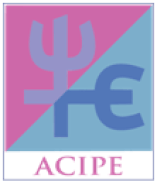
Francisco Alcantud Marín
University of Valencia, Spain
Intervention in Autism Spectrum Disorders at different moments in life.
Participants: Susana Mata Ituralde, Liliana P. Rojas Torres, Sarah Sanchez Cueva, Yurena Alonso Esteban, Paula Sesé Martínez
This symposium compiles the results of screening and intervention programmes in autistic population and their families. The first communication presents the results of a screening programme developed in Guayaquil (Ecuador) in which two contrasting tools (MCHAT-R/F and ADEC) have been used. In conclusion, a community screening programme was designed.
A second family intervention programme will be presented. Families, when they receive the news of the diagnosis, usually suffer an increase in stress that must be properly channelled and take advantage of this action to improve communication with their children. The programme, based on mindfulness parenting, has proven to be effective in reducing parental anxiety. Recommendations for the future of this type of intervention are established.
The third paper presents the results of the PICCA programme. The increase in the prevalence of autism spectrum disorders seems to be centred in the group of autistic people without intellectual disability. This group of people usually have the potential to reach higher education, however, not all those who reach this level of study finish it. Among the reasons they express and justify dropping out are the lack of specific support and in particular the high levels of anxiety they suffer from. The PICCA programme is a cognitive-behavioural intervention with mindfulness that aims to teach students to cope with typical anxiety situations in university students and in particular those who have autistic traits or a diagnosis of autism.
Finally, the results of the adaptation of the SRS-2 (Social Responsiveness Scale) used to detect autism spectrum disorders and differentiate them from other disorders such as pragmatic communication disorders or attention deficit hyperactivity disorder are also presented.
Dr. Francisco Alcantud Marín, Professor of Developmental and Educational Psychology at the University of Valencia has a long teaching and research career. Since 1994 he has coordinated the ACCESO Research Unit of the Department of Developmental and Educational Psychology at the University of Valencia (http://acceso.uv.es), specialising in the research and development of assistive technology. Together with his team and with the support of the academic authorities, he created and directed the Unit of Attention to Students with Disabilities at the University of Valencia from 1994 to 2008, funded thanks to the ESF with HORIZON projects such as UNICHANCE (1995-1997), ACCESO-25 (1998-2000) or Leonardo projects such as AUXILIA (2003-2005). Director of the Master's Degree in Social and Health Care for Dependency (2007-2010) and doctoral programmes (2009-2010). Director and creator of the University Centre for Early Diagnosis and Care of the University of Valencia (2008-2018). He currently focuses his research and teaching work on the psychoeducational intervention of children with Autism Spectrum Disorders, being the author of several books and scientific articles on this subject.





